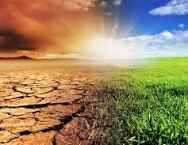The impact of education on climate change

Education can have profound effects on climate change. Some of these effects are mentioned below:
-
Increasing public awareness: Educating people about the causes and effects of climate change can increase public awareness and help people make more informed decisions. This awareness can lead to the reduction of polluting activities and the support of environmental policies.
-
Promoting sustainable behaviors: Education can lead to changing individual and collective behaviors. People can learn how to reduce their energy consumption, use renewable resources and help save the environment.
-
Empowering the young generation: Educating children and youth about environmental issues can prepare the future generation to face the challenges of climate change. This can lead to the development of innovative and sustainable solutions.
-
Environmental Policy Support: Educating elites and policymakers can help formulate and implement more effective and scientific policies to deal with climate change.
-
Development of green technologies: Education in the fields of science and technology can help develop new and environmentally friendly technologies, which can reduce greenhouse gas emissions and increase resource efficiency.
-
Strengthening international cooperation: Education can contribute to better understanding and international cooperation to tackle climate change, as it is a global issue that requires coordinated efforts.
In general, education can play an important role in changing attitudes and behaviors, improving knowledge and skills, and advocating for environmental policies and technologies, all of which can help mitigate the effects of climate change.

Lack of education on climate impacts
Lack of education about environmental issues and climate change can have many negative effects. Some of these effects include:
-
General Ignorance: Without adequate education, many people may be unaware of the causes and effects of climate change. This ignorance can lead to the continuation of environmentally destructive behaviors and lack of support for environmental policies.
-
Not changing behaviors: Education plays an important role in changing individual and collective behaviors. Without education, people are less likely to change their daily habits toward sustainable and environmentally friendly behaviors, such as reducing energy consumption, recycling, or using public transportation.
-
weakness in policymaking: The ignorance of policymakers and elites about environmental issues can lead to the formulation and implementation of ineffective and incorrect policies. This can lead to an increase in environmental problems and the inability to deal with climate change.
-
Lack of development of sustainable technologies: Without training and research in scientific and technological fields, the development and implementation of green and sustainable technologies may face serious problems. This can lead to the continued use of polluting and unsustainable technologies.
-
Decreasing international cooperation: Education can help strengthen international cooperation in the field of dealing with climate change. Without it, countries may not be able to work together well and global efforts to tackle climate change may fail.
-
Intensification of the vulnerability of communities: Communities that do not have proper education in the field of climate change are more exposed to damages caused by climate change. These communities may not be able to adapt well to climate change and suffer economic, social and health problems.
In sum, the lack of education can lead to increased environmental problems and climate change, weak policy making, reduced international cooperation, and increased vulnerability of communities. Effective education can reduce these problems and help create more informed and sustainable societies.